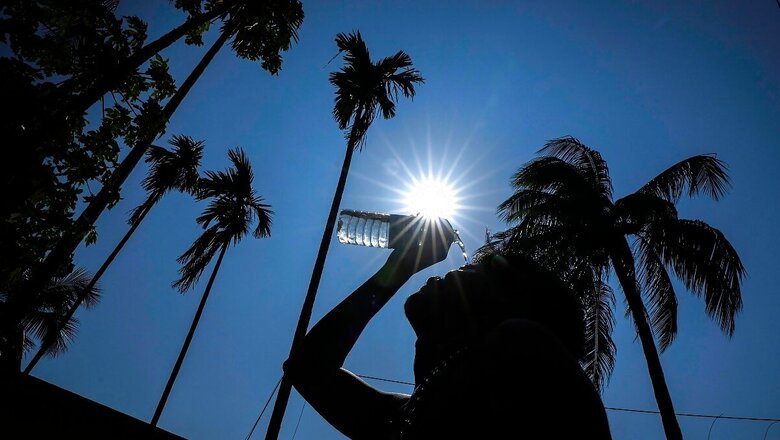
views
As hellish temperatures break all records, hospitals in the national capital region are witnessing a significant surge in outpatient and emergency cases related to heat-induced illnesses.
On Wednesday, the weather station in Delhi’s Mungeshpur reportedly registered India’s hottest day ever at 52.3 degree Celsius.
Most patients visiting the emergency department are elderly or have a medical history. Experts told News18 that seniors and children are at greater risk, as well as individuals with chronic conditions like diabetes, hypertension, cardiovascular diseases, or those on specific medications.
The most common ailment due to the high temperatures is dehydration, which can be identified by dry mouth, fatigue, and low urine output. Additionally, people are fainting due to low blood pressure.
Higher Footfall in Emergency, OPDs
Such heat-related complaints have increased noticeably at hospital OPDs and emergency departments across Delhi-NCR.
“Compared to last week, the hospital is witnessing a significant 15% increase in cases related to heat-related illnesses due to the heat wave,” Dr Pankaj Verma, senior consultant for Internal Medicine at Gurugram-based Narayana Hospital told News18.
“Majority of this 15% increase are elderly with chronic conditions such as respiratory, heart, and kidney diseases, and diabetes,” he explained, adding that many patients arrive in a state of shock and about 5% need hospitalisation.
Doctors are also witnessing viral gastroenteritis combined with heat-induced dehydration, which is causing severe illness. However, the surge is still not alarming in the context of the significant surge in temperatures.
“While the cases are increasing, nothing is very alarming yet due to access to cooling, water and awareness,” said Dr Atul Gogia, senior consultant for Internal Medicine at Sir Ganga Ram Hospital. “There is an increase of 15% to 20% of heat-related patients coming in OPD and about 10% increase in emergency compared to the last week.”
Dr Ankur Gupta, consultant for Internal Medicine at Fortis Escorts, Okhla told News18 that, on average, he sees 10 patients in the OPD daily who are unwell due to extreme heat.
What are the Heat-Related Illnesses
Heat illness contains a spectrum of disorders that arise from the body’s inability to cool down effectively, ranging from mild heat cramps to severe, life-threatening heat stroke.
Common heat illnesses include heat cramps, characterised by muscle pains or spasms, often in the legs or abdomen, and heat exhaustion, marked by heavy sweating, weakness, dizziness, nausea, headache, and muscle cramps.
“The most severe is heat stroke, which presents with a high body temperature (above 40 degree Celsius or 104 degree Fahrenheit), confusion, rapid pulse, and potential unconsciousness, and requires immediate clinical intervention to avoid being life-threatening,” explained Dr Verma from Narayana Hospital.
How to Stay Cool
Factors like poor hydration, and strenuous physical activity further increase the risk of heat stroke and heat illnesses.
To prevent heat illnesses, individuals should stay hydrated, avoid excessive outdoor activities during peak heat, wear light clothing, and use fans or air conditioning.
Hospitals generally stabilize patients’ conditions, often with intravenous fluids for rehydration, and closely monitor vital signs.
While severe heat illnesses can cause long-term damage to vital organs, experts insist that prompt treatment can often prevent stroke.
Doctors advise minimizing sun exposure, staying indoors as much as possible, and ensuring adequate fluid intake in the form of water, coconut water, lemon water and buttermilk.
Explore in-depth coverage of Lok Sabha Election 2024 Voter Turnout, Upcoming Phase, Results Date, Exit Poll And Much More At News18 Website




















Comments
0 comment